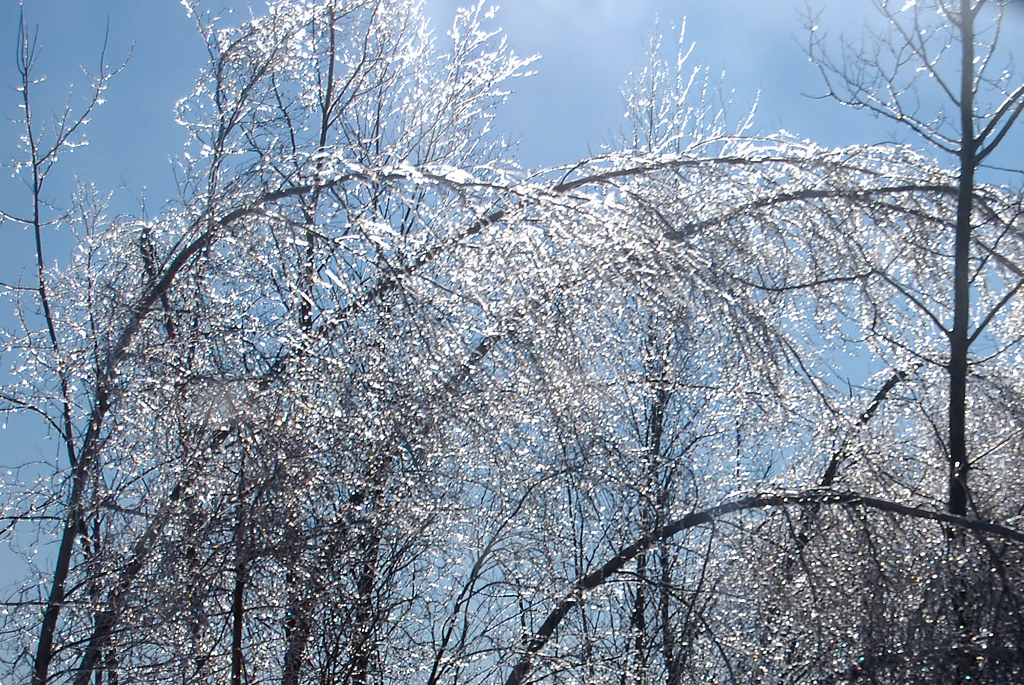In my constant search for gallows humor to cut the bitterness of the present moment, I couldn't help but chuckle at this incongruity -- two messages at the same march, one calling for an end to violence, the other insisting that the violence must continue. And yet, despite their seemingly obvious incompatibility, one suspects that the sign-bearers don't see any conflict.
At one level, this validates the suspicion many pro-Israel folks have about the disingenuity of at least some calls for a "ceasefire" -- namely, that they don't want a ceasefire at all. They don't have a problem with military action per se, they just think only Palestinian militants should be allowed to do it -- a war where only one side is allowed to show up.* There is no incompatibility, it turns out, in demanding a ceasefire on October 6 and October 8 while insisting on the legitimacy of more October 7s.
At another level, this illustrates something far more banal about calls for a "ceasefire" -- namely, "on what conditions"?
As I've noted, everybody -- no matter what "side" they align with -- would support a cessation of hostilities under certain conditions. For some, the conditions are "the elimination of the Zionist settler-colony"; for others, it may be "the complete overthrow and overhaul of Gaza's Hamas-run government." Of course, these conditions are neither easily imposed nor agreed upon by at least one party to the conflict, hence, no ceasefire. And even once we get past those extremities, there still are plenty of sticking points that can thwart a ceasefire proposal. It's no accident that both
Hamas and
Israel have, over the course of the past few months, been in the position of rejecting various ceasefire proposals on offer. Neither party, unsurprisingly, is bent on an unconditional ceasefire. For both, there are certain demands that, if not met, will prompt them to keep fighting. And the same is true of their external backers. There is essentially no
genuine "anti-war" movement to speak of, prioritizing ending the conflict above all else. What there is, rather, is widely divergent disagreements over under what
circumstances war and military action are justified.
And that, in turn, brings to mind a different slogan one might find associated with protests like these: "No Justice, No Peace." Like "no peace on stolen land," this slogan places a boundary -- a condition -- on calls for peace. It is against a "ceasefire" that allows injustice to persist and retrench itself while under siege. It explains a circumstance in which calls for peace will be rejected; where violence must continue. Peace is not a sacrosanct good. Where there is no justice, then peace cannot be allowed to obtain.
We all, I think, can grasp the appeal of this slogan. And essentially anyone who is not a full-scale pacifist agrees with it in part -- believing that some injustices cannot be acquiesced to in peace. But I also think the events of the past few months should also prompt a critical reflection on this slogan, whose romantic valorization of the noble struggle perhaps masks what "No Justice, No Peace" actually means in practice.
Israelis will tell you that the war in Gaza is a war about justice: justice for those maimed, kidnapped, raped and murdered on October 7. They aren't without a point. Is it "justice" that those who orchestrated that awful butchery walk free? Is it "justice" that Hamas after all the terror it has wrought remains entrenched in power in Gaza? There is no justice in those states of affairs. Justice is ensuring that Hamas is utterly destroyed. Justice is seeing the terrorists behind October 7 either in custody or in graves. And so to those who call for a ceasefire now, the Israeli response at its most basic is: "no justice, no peace."
Of course, from the other perspective, there are different injustices that generate the impetus behind "no peace" -- the injustices of occupation, of settler violence and IDF attacks, of the Nakba, and so on. And one can respond to that expanded list of injustices with yet more injustices coming from the opposite direction. My point is not to litigate every party's litany of injustices. My point is to simply observe that this -- these past few months -- is what "No Justice, No Peace" actually looks like when brought into its fullest, most terrible bloom. Countless dead, countless more suffering, unspeakable devastation and destruction -- all for a "justice" that has proven itself elusive.
It may be that some justice is necessary for peace to endure, but the brute reality is that the opposite is true as well: in any realistic rendition, peace will only be achieved by consciously agreeing to yield to some measure of injustice. If one wants peace, one must be willing to support it even accepting that peace means some injustice will not be mended, that some villains will go free, that some wrongs will be allowed to persist -- to say "no justice, but yes peace."
.... It is, I'll repeat, infuriating that we can't figure out a way compatible with basic human rights standards to make it so that Hamas pays its deserved price for the atrocities it committed on October 7.
It is infuriating. It is, in a sense, unacceptable. And yet, it may have to be accepted, if peace is to reign. For if that fury makes one truly insistent on "No Justice, No Peace," it is a fury that can justify near-endless war and carnage.
To be sure, one can take this insight too far as well: the whole reason this slogan has the purchase it does is, again, we all have a sense that some injustices cannot be acquiesced to peacefully. We're all figuring out where that line is, and it's hard for a reason. There's no obvious rule for when peace must yield to justice or vice versa.
But what I will say is that peace is very precious, because not-peace is awful. One should be very hesitant to shatter peace even for the noblest cause, because there is no such thing as a war in which only side is allowed to show up.
* For what it's worth, one does have to pay the piper on this, and so to the extent one characterizes Israel and Palestine (or Hamas) as "at war", then both sides are allowed to show up. This means that, even if I think it would be fantastic if Hamas was annihilated as a military force as soon as possible, genuine military actions by Hamas -- e.g., attacking Israeli soldiers in Gaza -- are not themselves war crimes. While all is not fair in war and there are ways of prosecuting a war that are criminal, at the very least in a war Israeli soldiers are allowed to target Palestinian militants and vice versa.



